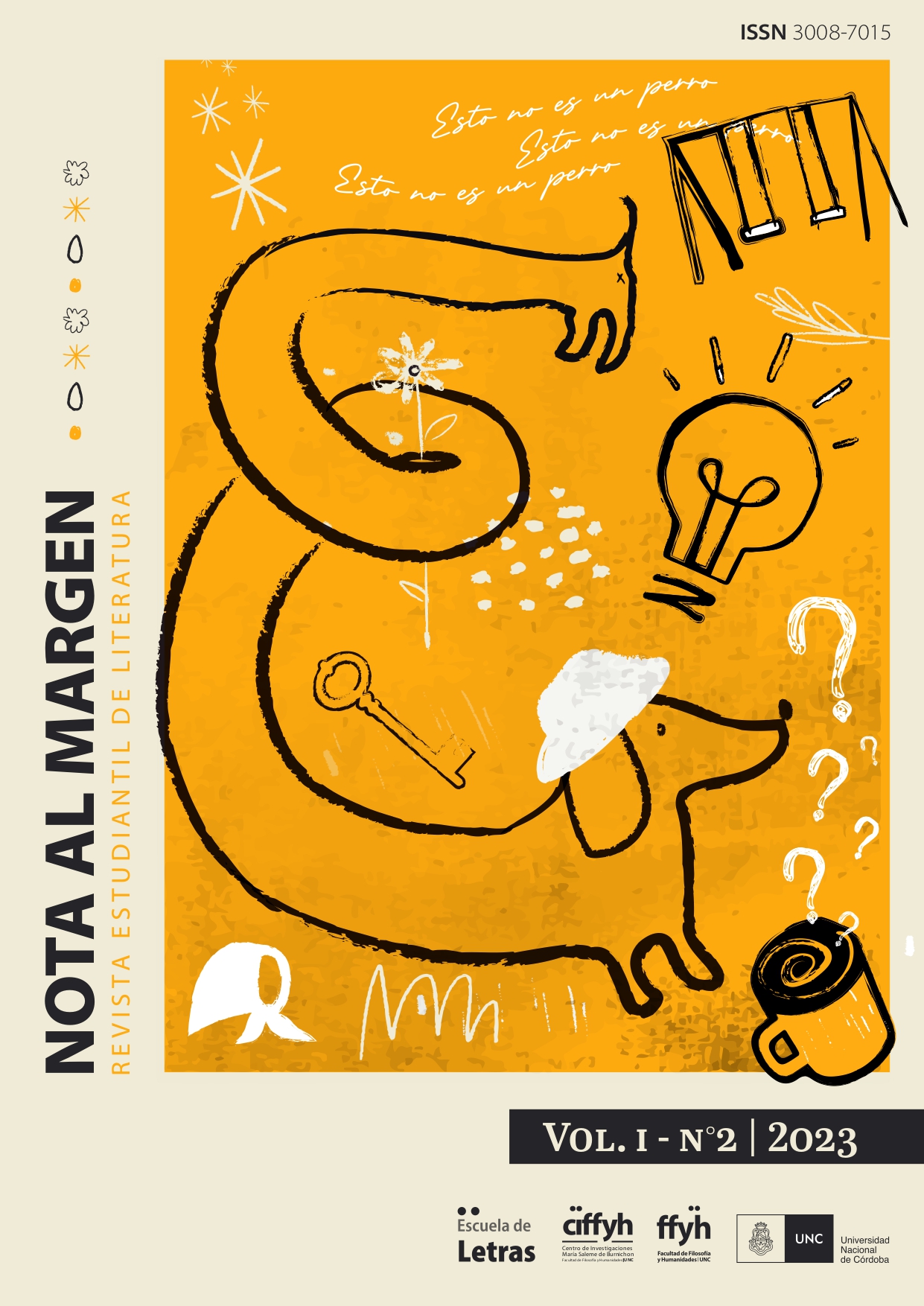Maternity and Violence: An Analysis From Different Women Writers of German Literature
Keywords:
german literature, women writers, domestic violence, maternityAbstract
The scarce presence of women in the usually handled literary canon derives from certain socio-historical conditions. This has had repercussions in notable areas such as German literature, where, for hundreds of years, the female gender has been invisibilized, either in the role of writer or as a fictional character. Many times we did not have the chance to hear voices beyond the male ones and, therefore, we were left with a narrower perspective in the construction of different stories and characters. Thus, in that vast world made up of women of letters, lies one of the topics that has given us the most to talk about: The role that the character of the mother maintains within the family, a role that, in general, has been little delved into literary works written by men. In this article, then, we hypothesize that literature written by women contributes to think about the representation of mothers based on much more complex nuances; for example, the coexistence of a passive and active role around violence. In order to delve deeper into this idea, our corpus will be made-up of certain Novelles and other works written by Annette von Droste-Hülshoff, Marlen Haushofer and Elfriede Jelinek.
Downloads
References
Brett, D. (1985). Friedrich, the Beech, and Margreth in Droste-Hülshoff's "Judenbuche". En The Journal of English and Germanic Philology, (84) 2, 157-165.
Dobre, C. E. (2019). El salón, un oasis cultural para la emancipación femenina en el Romanticismo alemán’’. En La actualidad del primer romanticismo alemán: Modernidad, filosofía y literatura. Editorial Científica Universitaria de la Universidad Nacional de Catamarca. https://www.teseopress.com/romanticismo/chapter/el-salon-un-oasis-cultural-para-la-emancipacion-femenina-en-el-romanticismo-aleman/
Droste-Hülshoff, A. (1997). El haya de los judíos yLedwina. Editorial Cátedra.
Fernández Martínez, S. (2017). Sublime dolor: el castigo corporal en La Pianista, de Elfriede Jelinek. En Tropelías. Revista de Teoría de la Literatura y Literatura Comparada, (1). Universidad de León.
Gamba, S. (2008). Feminismo: historia y corrientes. En Diccionario de estudios de Género y Feminismos. Editorial Biblos.
Haushofer, M. (1995). El Muro. Editorial Siruela.
Haushofer, M. (2008). Nosotros matamos a Stella. En Nosotros matamos a Stella. El quinto año. Editorial Siruela
Jelinek, E. (1983). La pianista. Editorial Debolsillo.
Ketch, M. R. (2007). Marlen Haushofer: Recollections of Crime and Complicity. En Studies in 20th and 21st Century Literature, (1), 82-108. Kansas State University.
Mallol, A. D. (2004). Hacia una subjetividad pop: poesía, ficción y sujeto en algunas poetas argentinas. En Cuadernos del Sur, (34), 139-164. Universidad Nacional del Sur.
Martín Martín, J. M. (2019). Escritoras en lengua alemana. Renovación del canon literario. Editorial Comares.
Mayayo, P. (2003). Historias de mujeres, historias del arte. Editorial Cátedra.
Millett, K. (1970). Política sexual. Editorial Cátedra.
Pusse, T. (2010). I am coming! Returning to the Womb in Elfriede Jelinek’s Die Klavierspielerin and Michael Haneke’s Film La Pianiste. En Germanistik in Ireland: Yearbook of the German Studies Association of Ireland, (5), 89-108.
Wamba Gaviña, G. (2012). Antecedente temprano del feminismo en la literatura alemana, El muro (1968) de Marlen Haushofer y la mujer como construcción. [Ponencia]. V Congreso Internacional de Letras Transformaciones Culturales Debates de la teoría, la crítica y la lingüística. Facultad de Filosofía y Letras de la Universidad de Buenos Aires. https://literaturaalemanaunlp.files.wordpress.com/2013/05/antecedente-temprano-del-feminismo-en-la-literatura-alemana.pdf
Published
How to Cite
Issue
Section
License
Copyright (c) 2023 Luca Salinas

This work is licensed under a Creative Commons Attribution-NonCommercial 4.0 International License.
Usted es libre de:
Compartir — copiar y redistribuir el material en cualquier medio o formato.
Adaptar — remezclar, transformar y contruir a partir del material.
La licenciante no puede revocar estas libertades en tanto usted siga los términos de licencia
Bajo los siguientes términos:
Atribución — Usted debe dar crédito de manera adecuada,
brindar un enlace a la licencia, e indicar si se han realizado cambios.
NoComercial — Usted no puede hacer uso
del material con propósitos comerciales.









